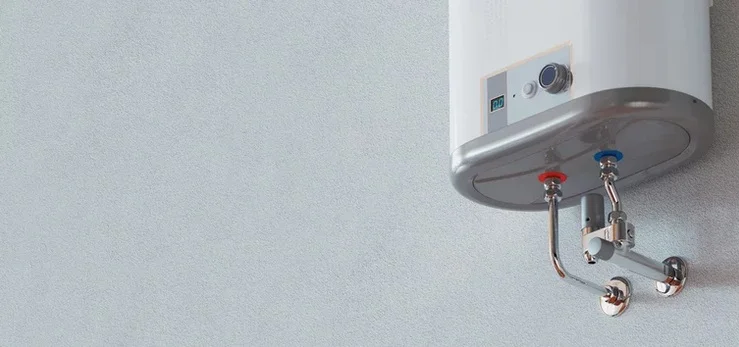Residential plumbing encompasses everything from the water supply pipes that bring fresh water into a house to the drainpipes that carry wastewater out. Mastering the basics of residential plumbing will allow homeowners to repair and install their plumbing systems, saving them money on professional services.
It will also help them identify issues like clogged drains and sewer line repairs, making them more proactive about maintaining their home’s plumbing. Visit https://www.prescherplumbing.com/ to learn more.

Residential plumbing refers to the pipes, fixtures, and appliances that deliver clean water to homes and take wastewater away. It includes the main water line that brings in freshwater, the pipes that carry water to sinks, toilets, showers, and bathtubs, and the drainage system that removes wastewater and carries it to the sewer or septic tank. Residential plumbing also includes the water heater, which supplies hot water for washing, cleaning, and other household uses.
Plumbers can install a wide variety of residential plumbing fixtures and appliances, including dishwashers, washers, dryers, and more. They can also install water treatment systems to filter and treat home drinking water. These are typically installed in the main water line, although they can be installed at the fixture level as well.
When installing new plumbing, it is important to follow all local building codes and regulations. This ensures that the system is safe and will function properly. It is also important to carefully plan out the installation project before starting. This can help avoid costly mistakes and ensure that the new plumbing is compatible with existing systems.
One of the most common residential plumbing services is replacing or repairing drainpipes and faucets. Leaks and other problems with these components can cause serious damage if left unattended, so it’s important to have them fixed as soon as possible. A skilled plumber can quickly and efficiently repair or replace these parts to get the water flowing again.
Another important service residential plumbers provide is rerouting plumbing lines. This can be done when a home is being renovated or extended, and it can improve the flow of water throughout the house. It is essential to have a professional plumber do this work, as it requires knowledge of both construction and plumbing.
Residential plumbing can seem complicated, but it’s important to understand how the system works and what role each part plays. Plumbers can help make the process as smooth as possible by explaining what they’re doing and answering any questions you may have. This will help you feel confident in their work and know that your home is in good hands.
The repair process for residential plumbing involves fixing pipes, fixtures and other components in a household’s drainage system. Plumbers usually start by identifying the problem and consulting with the homeowner to come up with an appropriate solution. They may also recommend replacing old components, such as worn-out faucets and pipes, to prevent future problems from arising. This is one of the most common services provided by plumbing companies.
Aside from replacing and repairing damaged parts, residential plumbers are also responsible for maintaining the plumbing systems in their clients’ homes. This includes performing regular inspections to ensure that the pipes and fixtures are functioning properly. In addition, they may need to reroute water or gas lines when renovations or extensions are done on the house. They are also expected to keep up with the latest plumbing technologies and solutions to ensure that their clients’ homes are well-equipped.
Another service that residential plumbers provide is drain cleaning. This involves removing obstructions from the house’s drain lines to ensure that water and gas can flow freely. This is a necessary service for both residential and commercial buildings, as blockages can lead to serious damage in the long run.
Residential plumbing also includes installing and repairing fixtures such as sinks, tubs, toilets, showers and outdoor faucets. They also install and repair heating and cooling units to ensure that the temperature in a home is comfortable throughout the year. Some residential plumbers may even install laundry machines and dishwashers, depending on the needs of their clients’ households.
Unlike commercial plumbing, residential plumbing typically deals with smaller issues, such as leaky pipes and clogged drains. It’s easier to determine where these issues are coming from in a home, as residents use the plumbing fixtures regularly and would notice any small changes in water flow or running water. However, larger issues, such as sewer line damage, are more difficult to diagnose and require specialized equipment to solve.
If you’re experiencing any of these issues, it’s best to contact a reliable plumbing company right away. They will send a plumber to your home to perform a thorough assessment and find the source of the problem. Having these issues addressed early on can save you a lot of money in the long run and avoid costly repairs in the future.
When pipes in a home are damaged beyond repair, they may need to be replaced. This can be a daunting task for homeowners, but it is often more cost-effective than continually repairing aging or damaged pipes. Repiping your home can improve water pressure, eliminate leaks and clogs, and make appliances more efficient.
Residential plumbing systems are designed for single-family homes and have simpler layouts than commercial plumbing systems. Commercial spaces have higher daily usage and require larger water pipe sizes, as well as multipurpose fixtures and more complex drainage systems. This requires more extensive training and knowledge of building codes and regulations.
The lifespan of your pipes depends on a number of factors, including the materials they are made from and how well you maintain them. Most plumbers recommend that you get your pipes inspected regularly to determine if they need to be replaced. Older pipes are more likely to leak or break, while newer pipes are usually made of durable materials that can withstand greater wear and tear.
Depending on the type of pipes you have, they could last anywhere between 30 and 100 years. You can find out the age of your pipes by looking at your home inspection report or contacting your local water authority. Older pipes are more likely to have issues, especially if they are made of galvanized steel, which can corrode and leak over time.
A repipe is the process of replacing all of the water supply pipes in your house. This can be an excellent opportunity to upgrade your pipes to more durable materials, such as copper or PEX. It’s also a good time to consider adding water-saving fixtures, such as low-flow toilets and faucets.
The cost of a repipe can vary significantly, depending on the scope of work, materials needed, and labor hours. If the current pipes are buried underneath or behind walls, it will take more time and labor to gain access to them and install the new ones. You’ll also need to consider if you want your plumber to patch and repaint the drywall afterward.
Residential plumbing services include fixing clogged drains, leaking pipes and toilets as well as installing new fixtures. These are services that homeowners need to have done on a regular basis to ensure that their plumbing works as it should and prevents problems down the road such as water damage from faulty pipes or fixtures.
The most important function of any plumbing system is to provide a constant supply of fresh, clean water to the home’s fixtures and appliances. This is achieved by the water service line that comes into the house, the pipes that distribute water throughout the home’s rooms and the drainage system that removes waste and carries it to the sewer or septic system.
Because homes are smaller and have less use than commercial spaces, residential plumbing systems tend to wear out or become damaged more slowly than their counterparts in larger buildings. As a result, it can be easier to identify and repair issues with residential plumbing. However, this does not mean that there aren’t still challenges with residential plumbing.
In many cases, a homeowner’s plumbing problems are caused by a buildup of materials within the pipes that lead to the fixtures and appliances. This can include food particles, grease, hair strands and other debris that over time can cause blockages. A plumber that offers residential plumbing services will regularly check for this and remove any material before it can cause a full-on clog that may require pipe replacement.
One other factor that distinguishes residential plumbing from commercial is the fact that homeowners tend to be more vigilant about identifying and repairing small leaks and running toilets than they would in a commercial space. This is because they have a vested interest in keeping their homes safe and comfortable, as well as in minimizing the amount of money they spend on utility bills.
The differences between residential and commercial plumbing are not insurmountable, but they do exist. Familiarizing yourself with these distinctions can help you determine the type of plumber you need to hire for your home or business.

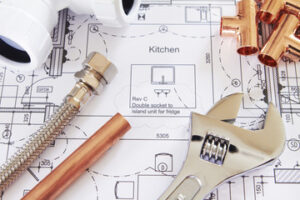
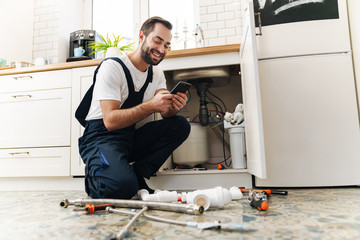
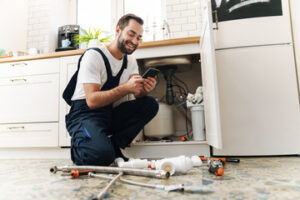 A plumbing expert at
A plumbing expert at 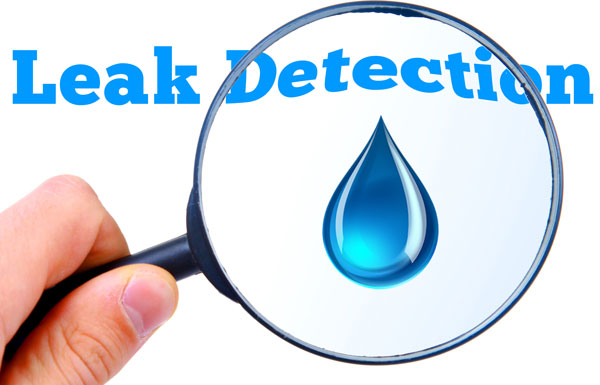
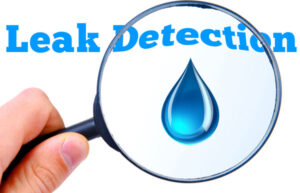 The process of leak detection is broken down into three parts: the detection of the leak and the segment where the leak is located. The third phase determines the exact location of the leak. Each of these steps can be automated. This makes it possible to detect a leak quickly and efficiently, and it is essential to ensure that you have adequate leak detection. After all, the goal is to prevent significant damage. However, many things can go wrong, and a leak detection system can’t detect them all.
The process of leak detection is broken down into three parts: the detection of the leak and the segment where the leak is located. The third phase determines the exact location of the leak. Each of these steps can be automated. This makes it possible to detect a leak quickly and efficiently, and it is essential to ensure that you have adequate leak detection. After all, the goal is to prevent significant damage. However, many things can go wrong, and a leak detection system can’t detect them all.